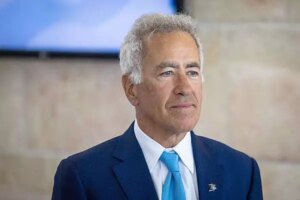
Shafaq News
Artificial
Intelligence (AI) has shifted from futuristic theory to global necessity,
reshaping economies, public services, and knowledge systems. Iraq, emerging
from decades of conflict and institutional fragility, is now taking measured
steps into this transformation.
The Ministry of
Higher Education and Scientific Research has announced the establishment of two
new colleges at the University of Baghdad: the College of Excellence and the
College of Artificial Intelligence. Both are expected to open in the 2025–2026
academic year, a move that signals a decisive turn in Iraq’s higher education
modernization.
The College of
Excellence will cover a wide range of fields, from data science and e-business
management to banking, philosophy, and sociology. The College of Artificial
Intelligence will focus on engineering applications, biomedical technologies,
and big data analytics.
The ministry has set
an August 20 deadline to finalize logistics and faculty appointments, with
admissions rules tailored to attract high-achieving students.
For Minister Naeem
Abd Yaser al-Aboudi, the project goes beyond bureaucratic restructuring. It is
an attempt to align Iraqi academia with global technological shifts and prepare
graduates for a digital economy increasingly reliant on advanced tools.
The University of
Baghdad is not alone in experimenting with AI programs. The University of
Warith al-Anbiyaa in Karbala has already launched an artificial intelligence
department that has drawn wide student interest. The Middle Technical
University in Baghdad has introduced courses in cybersecurity and AI, while the
American University of Baghdad recently secured international funding to
establish an Innovation Lab dedicated to digital intelligence and engineering.
Even Al-Iraqia University has incorporated AI into its media faculty through a
new department of AI journalism.
Together, these
initiatives suggest the early formation of an academic ecosystem that could
push Iraq toward the digital age. Policymakers argue that the task now is to
transform scattered efforts into a structured national program.
Read more: Brainpower and bytes: Iraq’s race for AI supremacy
Firas al-Muslmawi, a
member of the parliamentary Higher Education Committee, told Shafaq News the
new colleges should become models to be replicated nationwide, with unified
curricula forming the backbone of Iraq’s future AI education. He emphasized
that the technology’s applications in medicine, planning, and knowledge
production justify embedding it firmly into universities.
Academics, however,
caution that ambition must be matched by capacity. Alaa Najah, professor at the
University of Baghdad’s College of Media, welcomed the new colleges as a
necessary first step but noted their success hinges on infrastructure,
electricity, and qualified faculty. Iraq, he argued, must not only train its
own instructors but also recruit expertise from abroad.
“Iraq must not only
train its own instructors but also draw on expertise from abroad. If we do not
keep pace with modern technologies, we will be technologically illiterate,”
Najah warned.
Students, meanwhile,
see AI studies as a route out of Iraq’s stagnant labor market. Hassan Sarmad
al-Ghazi told Shafaq News he intends to apply to the College of Artificial
Intelligence to secure a stable future without relying on public-sector
employment. Israa Ibrahim expressed optimism that digital skills could open
doors to remote work with international firms or higher-paying jobs in domestic
industry.
The expansion of AI
education cannot be separated from Iraq’s broader national strategy. The
state’s first major steps in AI came in security, where rising cyber threats
pushed the Ministry of Interior to establish a Cybersecurity Directorate in
2022. That body, under Brigadier General Hassan Hadi Lazeez, now manages
digital forensics and AI-based threat detection. Thousands of personnel have
received training.
In 2024, the
government drafted a National Strategy for Artificial Intelligence, known as
INSAI, designed to integrate AI across healthcare, agriculture, tourism, and
education. The University of Baghdad’s new colleges can thus be seen as higher
education’s contribution to this strategy.
Despite this
momentum, serious obstacles remain. Educational technology expert Dr. Mohammad
Awada told Shafaq News that while internet penetration now exceeds 80 percent,
network stability is weak and frequent shutdowns — often during exam periods —
undermine digital services.
“Many universities
lack reliable electricity and modern laboratories, with some schools relying on
solar solutions provided by aid agencies,” Awada said, adding that brain drain
continues to weaken the talent pool, leaving institutions short of qualified
faculty in AI and related disciplines. Just as concerning, Iraq has yet to
develop a legal and ethical framework to govern AI deployment, raising
questions about research integrity and data security.
International studies
confirm both the potential and the limitations. Research on Iraqi universities
suggests AI-based teaching can improve classroom performance, but stress the
need for institutional support and sustained funding. At Al-Nahrain University,
faculty members have voiced support for integrating AI into pedagogy, seeing it
as a way to move beyond teaching methods long criticized as rigid and outdated.
Regionally, Iraq is
still in the early stages compared with the UAE, Saudi Arabia, or even
neighboring Iran and Turkiye, all of which have national AI strategies already
underway. The UAE launched the world’s first Ministry of Artificial
Intelligence in 2017, Saudi Arabia’s SDAIA oversees large-scale AI investment,
while Iran continues to fund AI research despite sanctions.
Against this
backdrop, Baghdad’s initiative may appear modest, but it is significant. It
reflects recognition that exclusion from the AI ecosystem would deepen Iraq’s
marginalization and dependence.
Written and edited by
Shafaq News staff.





